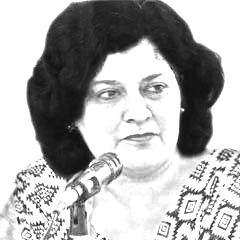
As per World Justice Project Pakistan is placed 5th out of 6 countries in the region and 106 out of 113 countries and jurisdiction worldwide. Pakistan has successfully initiated and completed legislative steps in past few years including the recent Child Protection bill 2017 and Juvenile Justice act 2017. These Bills are not first of their kind, as Pakistan has been a part of various international human rights treaties as well. The core issue is the implementation of all such laws and regulations as still violations of child rights are reported and observed on despite various initiatives.
A lot is being said about the out of school children, children involved in child labour, child abuse A very important issue regarding children under age kids committing crime and ending up in jails. The juvenile Justice Act 2015-17 is the recent development to protect the rights of the ones who commit an offence or are in conflict with the existing laws of state.
The act defines ‘child’ as a person who at the time of commission of an offence has not attained the age of eighteen years; It further talks about Child protection centre and Juvenile courts as well to handle the cases of children involved (source Juvenile Justice act Proposal 2015). It also sets certain dos and don’ts for handling the cases like Juveniles are tried separately from adults, separate charges and better bail granting options, trial needs to be concluded in four months, but like other legislations, again the key question is implementation where we are lagging behind.
When we look at psychological aspects of personality development atypical male brain isn’t formed completely till the age of 20. These parts of the brain last to develop are responsible for controlling how individuals weigh long term gains and costs against short term rewards. As the system to regulate reward seeking is still evolving, this effects the decision making and judgment of a particular situation under anger, stress or frustration. The individual is unable to control him or self and decide to act including consequential thinking, future oriented decisions, empathy remorse and planning (source).
Next come the circumstances surrounding Children experiencing extreme behaviours, corporal punishments abusive behaviour by adults either at home, school, work place at the adolescence age, result in reactionary behaviours and short temper.
Current scenario in jails as per state of children report 2015 living conditions at the detention center except for a few exceptions are not worth living. No exclusive juvenile courts have yet been set under article 3 of the Act, accused child has the right of free legal assistance on the expense of state but lack of access and inability to free justice civil society groups, over 80 percent of juveniles charged with bail-able offences remain in prison due to lack of inadequate legal assistance
If we look at the cases of juvenile victims the routine procedure in the absence of Juvenile courts is that the victim reports to the duty officer, if possible the offender is also there, parents of victim and a mediator. Let me tell you that the either it’s the offender or the victim both need very special care as they are in multi-dimensional trauma ie the offence, the parental pressure, the pressure of society and the most dangerous, police station.
State of Children Report 2015 shows that living conditions at most detention centres is abysmal and unfit for housing juvenile offenders
The Juvenile Justice Act 2015 proposes Borstal Institutions (child care centres) for the moral, and psychological support of the children of these children. As per State of the children in Pakistan report, 2015 till day Balochistan has not yet established a Borstal institute centre, KP has one in Bannu, Punjab has two and four in Sindh. Provincial governments must allocate more funds for the establishment of the Borstal institutions for timely handling of the children as they deserve to be in a separate environment away from adult criminals. Staff engaged at police stations needs to be trained on skills of handling the child in trauma, negotiation and provide some space to the both victim and accuser.
Such issues can be handled by incorporating the idea of community policing, through alternate dispute resolution technique as it will reduce psychological impact upon the victim and accused. We have seen the establishment of police training schools in previous years, these schools can introduce Juvenile justice, Juvenile handling and the Psychological support as a part of their curriculums, so that the new inductions in police departments are trained on handling the case related to children in a sensitive and sensible manner.
Parents and teachers need to be vigilant about the behaviour and unusual reactions of children. Inclusion of themes like skill development (vocational and technical) stress management, anger management, tolerance in the curricular and co curricular activities can also help in controlling abrupt reactions of the under eighteen along with physical activities and volunteer work.
Media, instead of glorifying the villains and criminals must depict the realities as how one can suffer by getting in conflict with law.
The writer has experience in the field of education and is currently working as a resource person in the development sector
Published in Daily Times, August 22nd 2017.
